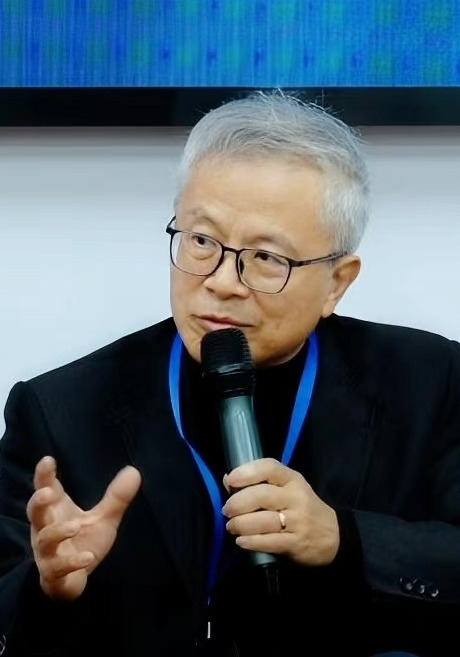The Value of Science and Values in Science
By Matthew Brown (Southern Illinois University)
Friday, 12 December 2025 at 19:00 Central Standard Time (Saturday, 13 December 2025, 9:00 Beijing, 10:00 Tokyo)
Abstract
Many an internet troll has recited the cliché, “Facts don’t care about your feelings.” In a similar sense, many have thought that science and values can have nothing to do with each other, the one being the realm of hard, objective facts and the other being the realm of subjective whims and desires. It only requires a little reflection to see that there cannot be a *complete* separation of science and values. Science is a human practice which we value enough to make central to education, to rely on in many of our personal and public decisions, and to devote significant resources to. Some people value science so much that they devote their lives to it. As an activity engaged in by human beings, science is also guided by values. Science is part of the social learning process that over time changes and improves our values. In this chapter, I will explore some of the interplay of science and values, beginning with the attempt to understand the value of science itself. I contrast a realist and a pragmatist approach to the value of science, and argue that the latter provides a better ground for exploring the role of values *in* science. The latter opens up the possibility of ethical and political critiques of science that do not in the least amount to an anti-science attitude.
Short Bio
MATTHEW J BROWN is the Jo Ann and Donald N. Boydston Professor of American Philosophy and the Director of the Center for Dewey Studies at Southern Illinois University Carbondale. His research areas include the history of philosophy in the 19th and 20th centuries and the history and philosophy of science. He is the author of Science and Moral Imagination: A New Ideal for Values in Science (Pittsburgh, 2020) and the editor-in-chief of HOPOS: The Journal of the International Society for the History of Philosophy of Science.

Pragmatism and China
By Yajun Chen (Zhejiang University)
30 November 2025 at 19:00 Beijing (11:00 UTC/GMT, 20:00 Tokyo)
Abstract
Pragmatism was introduced to China in the early 20th century, and more than a hundred years have passed since then. Over these hundred years, Chinese people’s acceptance of pragmatism has mainly gone through four stages, which are closely related to China’s social changes and development. How to understand pragmatism? There are different views in Chinese academic circles. From Hu Shi’s initial “methodology” theory, to the “idealistic theory of truth,” then to the “theory of meaning,” and finally to “empirical ontology,” the connotations of pragmatism have been explored from different perspectives. While each of these four understandings has its own merits, the last one – viewing pragmatism as an ontology fundamentally different from traditional philosophy – is the most appropriate and holds the greatest academic potential.
Short Bio
Chen Yajun 陈亚军 is a Qiushi Distinguished Professor at Zhejiang University, Director of the Dewey Center at Fudan University, Director of the Center for Practical Philosophy at Zhejiang University, and Chairman of the Chinese Society for Pragmatism. He has authored numerous books, including: Pragmatism: From Peirce to Brandom, Metaphysics and Social Hope: A Study of Rorty’s Philosophy, From Analytic Philosophy to Pragmatism: A Study of Putnam’s Philosophy, and Beyond Empiricism and Rationalism: Pragmatist Narratives and Their Contemporary Transformations.

Pragmatism Beyond the West: Brandom, Normativity and Dharmic Understanding
By Shone Surendran (King’s College London)
29 October 2025 at 11:00 UTC/GMT (19:00 Beijing, 20:00 Tokyo)
Abstract
The pragmatic turn is widely recognised as a major development in Western philosophy, marking a shift towards human action and practice in understanding meaning and knowledge. Its scope and significance have been revitalised through the work of the Pittsburgh Hegelians, who have brought the American pragmatist tradition into dialogue with German Idealism within the analytic tradition. This paper focuses in particular on Robert Brandom’s inferentialism and his normative pragmatic account of meaning as game of giving and asking for reasons for claims we articulate in our discursive practices. Drawing on my research across education, healthcare, and artificial intelligence, I explore how Brandom’s neo-Hegelian and non-dualist epistemological framework offers a critical approach to understanding meaning and communication in the design of interventions. My aim in addressing these developments, however, is to discuss how this non-dualistic framework remains confined within a distinctly Western historical and developmental narrative, that overlooks the influence of Eastern philosophical traditions and neglects non-dualist epistemologies. In particular, the concept of Dharma provides an alternative yet complementary articulation of judgement, responsibility and normativity. By bringing the inferentialist conception of discursive practice into conversation with Indian non-dualism (Advaita Vedanta) I propose a reorientation of pragmatism that extends beyond the West and its Anglo-American perspectives. Such an approach serve to acknowledge rich indigenous systems in world philosophies. In doing so, it contributes to a more inclusive and global philosophical discourse. A world philosophy capable of understanding of normativity in ways that can address global challenges in communication, learning and understanding.
Short Bio
Shone Surendran is an interdisciplinary researcher trained in both Western analytic philosophy and Advaita Vedānta (Indian non-dualism). He began his academic journey in Aerospace Engineering before training as a monk, an experience that continues to inform his philosophical and educational outlook. He studied analytic philosophy at Heythrop College and completed an MSc in the History and Philosophy of Science at the London School of Economics, followed by a PhD in Science Education at UCL IOE, where he examined Vygotsky and Robert Brandom’s inferentialism.
He is currently an Evidence Synthesis Researcher and Health Equity Fellow at King’s College London, an AI Equity Fellow at Guy’s and St Thomas’ NHS Foundation Trust (Genomic AI Network), and an Honorary Senior Research Fellow at UCL IOE. His interdisciplinary work spans healthcare, education, and technology, focusing on epistemic and social justice.
Shone serves as Book Reviews Editor for the London Review of Education and sits on the Editorial Board of Educational and Child Psychology. His recent writing appears in BERA Research Intelligence and Bloomsbury’s Autobiography, Fanfiction and Education (2025). He also teaches internationally at Amrita University, India, where he has developed postgraduate modules on the philosophy of cognitive science, digital health, and AI ethics.

Kata as Experience: A Deweyan Reflection on Kata and Habit
By Johnathan Flowers (California State University, Northridge)
Tuesday, 24 June 2025 at 19:00 Pacific Daylight Time (Wednesday, 25 June 2025, 10:00 AM Beijing, 11:00 AM Tokyo)
Abstract
This talk indicates the intersections between Japanese kata as an embodied practice which not only inculcates a collection of skills, but also inculcates ethical principles, and John Dewey’s understanding of habit. In theJapanese context, kata are essential for the mastery and embodiment of Do, or “ways” of being in the world. Insofar as this is thecase, kata themselves serve to align individuals with distinct Do, as ways of being in the world, through how they inculcate specific embodied practices into their practitioners. This process of inculcation bears a striking resemblance to John Dewey’s understanding of habit insofar as habit, like kata, serves to organize the body in line with particular dispositions towards actions which are what enable individuals to “have” a world. Further, as habit is the essential elements of customs, and customs are the ways in which cultures“have” a world for Dewey, placing Japanese kata and Do in conversation with Dewey’s theory of habit, culture, and custom can indicate the ways in which individual cultures have their own Do, or ways.
Short Bio
Dr Johnathan Flowers is Assistant Professor of Philosophy at California State University, Northridge. Flowers’s research areas include African American intellectual history, Japanese aesthetics, American pragmatism, philosophy of disability, and philosophy of technology. Flowers also works in the areas of science and technology studies and comics studies, where he applies insights from American pragmatism, philosophy of race, and philosophy of disability to current issues in human-computer interaction, artificial intelligence and machine learning, and representations of identity in popular culture. His first monograph, Monono Aware and Gender as Affect in Japanese Aesthetics and American Pragmatism, was published by Lexington Books in 2023.

A Comparison of Buddhist and Pragmatist Philosophies
By Juho Lindholm (Independent Scholar)
Wednesday, 21 May 2025 at 11:00 UTC/GMT (14:00 Tartu, 19:00 Beijing, 20:00 Tokyo)
Abstract
I believe that there are important similarities between Buddhist and pragmatist philosophies that have not been identified yet. In particular, I will examine the Buddhist doctrines of śūnyatā, idaṃpratyayatā, and anātman, on the one hand, and the pragmatist doctrines of anti-essentialism, process ontology, and synechism, on the other. According to the doctrine of śūnyatā (emptiness, void), phenomena have no permanent essence; they simply continually transform into each other. This coincides with the anti-essentialism of the classical pragmatists. According to the doctrine of idaṃpratyayatā (conditionality), all phenomena arise from conditions. Then the conditions arise from their conditions, and so on, ad infinitum. That seems to entail a process ontology. Of the classical pragmatists, Peirce crafted evolutionary cosmology, which is a process ontology, according to which even laws of nature have evolved. According to the doctrine of anātman, there is nothing to the self that does not reduce to the five senses. Here the pragmatist counterpart is different: Peirce and Dewey argued that there is nothing to the self that does not reduce to habit.
Short Bio
Dr Lindholm holds an MSc degree in control engineering and a PhD degree in philosophy. He has recently defended his PhD thesis, according to which knowledge is practice. He studies rational worldview from the standpoint of fallibilism, pragmatism, naturalism, philosophy of technics, and philosophy of economics. His ideas include cybernetic epistemology, technics as hermeneutics, and the potential practice-ladenness of all experience.

Peirce Disappears: C.S. Peirce and Early Logical Empiricism
By Mousa Mohammadian (American University of Beirut, Lebanon)
Wednesday, 30 April 2025 at 11:00 UTC/GMT (14:00 Beirut, 19:00 Beijing, 20:00 Tokyo)
Abstract
Scholars of the history of philosophy of science read and hear a lot about Duhem, Mach, Poincaré, and the members of the Vienna Circle. C.S. Peirce, however, is not generally considered a canonical figure in the history of philosophy of science. But in the early years of the logical empiricist movement in the United States, Peirce received a warm reception from prominent representatives, proponents, and sympathizers of logical empiricism including Charles Morris, Ernst Nagel, Herbert Feigl, and Phillip Frank. This reception was short-lived though and Peirce gradually disappeared from the mainstream philosophy of science while logical empiricism turned into a formidable movement.
In this talk, I begin by discussing some examples of the early reception of Peirce’s philosophy in the works of Morris, Nagel (and his student Justus Buchler), Feigl, Reichenbach, and Frank. These examples show a persistent and gradually refining engagement with various topics in Peirce’s philosophy of science from the late 1920s to the mid-1950s. I then offer some evidence for the eventual marginalization of Peirce in the mainstream philosophy of science and provide some explanations for it.
Short Bio
Dr Mohammadian is an Assistant Professor of Philosophy at the American University of Beirut. He specializes in general philosophy of science, history of philosophy of science, metaphysics, and Islamic philosophy. He received his Ph.D. in History and Philosophy of Science (Philosophy of Science Track) from the University of Notre Dame in the United States. He has been a Postdoctoral Fellow at the Reilly Center for Science, Technology, and Values, an IVC Fellow at the Institute Vienna Circle, University of Vienna, and a visiting fellow at the Center for Philosophy of Science, University of Pittsburgh. He has published in Transactions of the Charles S. Peirce Society, Synthese, Metascience, and the European Journal for Philosophy of Science.
